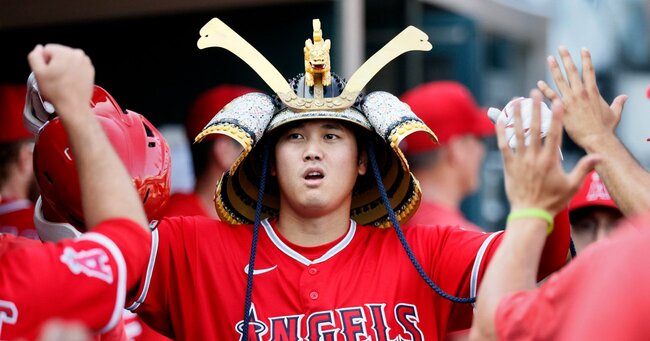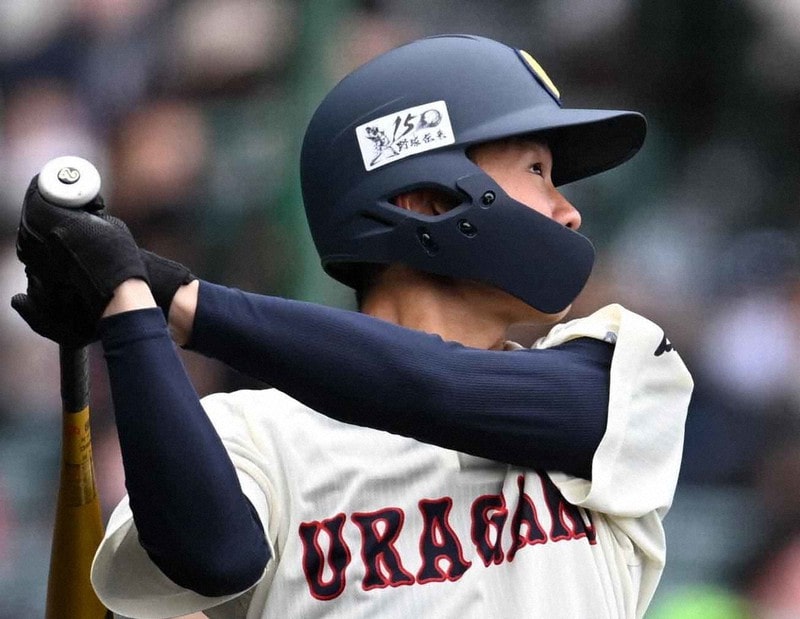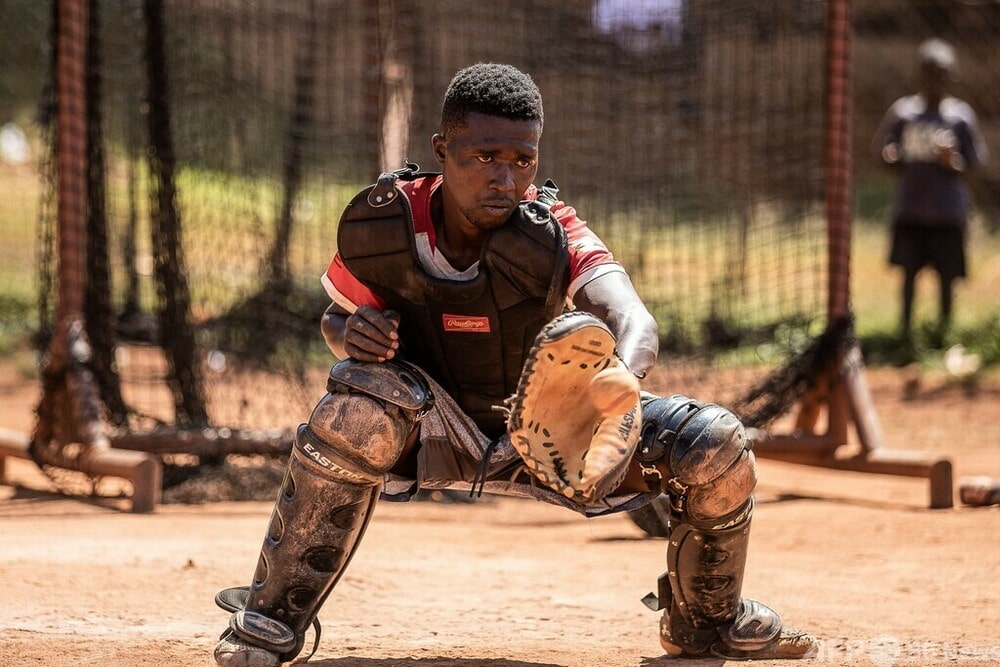
For college students, baseball often becomes more than just a sport; it becomes an important part of their lives.
Playing college baseball allows you to hone your skills, grow as a member of a team, and is a great way to prepare for your future career.
This article takes a closer look at how college students can grow and succeed through baseball.
We will explore the appeal and potential of college baseball from various perspectives, including skill improvement, team strategies, balancing studies and the path to becoming a professional.
目次
Basic knowledge of college baseball
For university students, baseball is a great opportunity to experience the joy of sports and learn teamwork while studying.
Here we will explain in detail the history and overview of college baseball, as well as the rules and regulations.
History and Overview of College Baseball
Collegiate baseball is widely known as “College Baseball” in the United States and “university baseball” in Japan, and each has its own unique history and culture.
Understanding the history of college baseball can help you rediscover the importance and appeal of this sport.
History of college baseball in the United States:
The first inter-college baseball game was played in the United States in 1859. Since then, college baseball has developed rapidly, and the tournament hosted by the NCAA (National Collegiate Athletic Association) is now known as the most prestigious tournament. In particular, the College World Series, held every June, is a major event that attracts many spectators and media attention.
History of university baseball in Japan:
University baseball in Japan began in 1925. The Tokyo Big Six Baseball League was established, with Waseda University, Keio University, Meiji University, and others participating. This league is still at the heart of university baseball in Japan, and has produced many famous players. In addition, national tournaments such as the All-Japan University Baseball Championship and the Meiji Jingu Baseball Tournament are held as major university baseball events.
The importance of college baseball:
College baseball is an important step for players on their way to becoming professionals. Many professional players enter the professional ranks after playing college baseball, and their college experience contributes greatly to the development of their skills and mentality. College baseball also requires players to balance their studies and sports, so it is a place for players to develop self-management and time management skills.
College Baseball Rules and Regulations
College baseball generally follows the same rules as professional baseball, but there are some differences.
Understanding these rules and regulations is important for players and fans.
Game Format:
College baseball games consist of nine innings, although some tournaments may use seven innings. The game is played and the winner is determined in the same way as in professional baseball.
Bat regulations:
In college baseball, both wooden and metal bats are allowed. However, regulations on bats that can be used may differ depending on the league or tournament, so players should check in advance. For example, in the NCAA, the use of metal bats is common.
Pitch Limits:
To protect the health of players, pitchers are limited in the number of pitches they can throw. This is to reduce strain on players’ shoulders and elbows, and is an important rule for high school and college players. The NCAA has strict pitch limits, limiting the number of pitches a pitcher can throw per game.
Number of registered players:
The number of registered players for university baseball teams varies by league and tournament, but is generally around 25 to 30. From this number, players are selected to play in each game. There may be conditions attached to the registration of players, such as academic performance and years of enrollment.
Tournaments and league games:
In college baseball, both league games and tournaments are held. In league games, each university plays against its own league and competes for rankings throughout the year. On the other hand, tournaments include national and regional tournaments, where teams compete for the championship in a short period of time. These tournaments are also a chance for players to catch the eye of professional scouts.
By understanding the history and rules of college baseball, players and fans can enjoy the appeal of this sport more deeply.
Collegiate baseball not only improves skills, but also plays an important role in personal growth and career development.
I believe that many young people will continue to grow through college baseball and pave the way for bright futures.

How to improve your college baseball skills
In college baseball, improved skills directly translate to team victory and individual player growth.
Here we will explain in detail the basic training menu, the importance of mental strengthening, and how to improve your skills using video analysis.
Basic training menus are essential for improving players’ basic physical strength and skills.
Below are some of the main training menus that college baseball players should undertake.
Strength training:
Strength training improves a player’s power and increases swing speed and pitching velocity. Basic weight training such as bench press, squats, and deadlifts strengthen the muscles of the whole body in a balanced manner. Core training is also important, and increasing the stability of the trunk improves the accuracy of swings and pitches.
Speed and agility training:
Speed and agility are important factors in defense and base running. By incorporating sprint drills and ladder drills, players can develop agility and improve their reaction time, which will lead to an expansion of their defensive range and improved accuracy in base running.
Endurance training:
Endurance is essential to maintain performance during a match. Running and circuit training strengthen your cardiopulmonary function and build up the stamina to perform at a high level even at the end of a match. Interval training in particular is an effective way to improve endurance.
Technical training:
In batting and pitching technical training, it is important to confirm and repeatedly practice basic form. It is necessary to regularly practice batting in a batting cage and pitching in a bullpen to make sure that the correct form is memorized by the body.
The importance of mental training
Mental strength is a key factor for college baseball players to perform at a high level.
Here are some ways to improve your mental health:
Mental training:
Mental training improves your concentration, perseverance, and ability to handle pressure. For example, by incorporating meditation and breathing exercises, you can reduce tension during a match and improve your concentration. Also, by practicing imagery, you can play with confidence.
Positive thinking:
Positive thinking is important for maintaining mental strength. By being positive about mistakes or poor performance during a game, you can focus on the next play. Positive communication with coaches and teammates also provides mental support.
Mental coaching:
Mental coaching can help strengthen the mentality of individual players. A specialized mental coach will evaluate the player’s mental state and provide appropriate advice and training. This will help stabilize the player’s mental state and maximize their performance in the game.
Using video analysis to improve skills
Video analysis is a highly effective tool in improving players’ skills.
Here are some specific ways video analytics can be used:
Form Check:
Using video analysis, you can objectively check your form. Your batting or pitching form is recorded on video and analyzed in detail using slow-motion or frame-by-frame playback. This allows you to clearly identify unnecessary movements and areas that need improvement.
Comparative analysis:
By comparing your form with that of professional or advanced players, you can clarify the difference in technique. This allows you to find specific areas to improve in order to achieve your ideal form. It is also effective to compare your past form with your current form to check your progress.
Play Analysis:
By recording the play during the game on video and analyzing it later, it is possible to improve tactics and evaluate each play. By analyzing in detail the defensive position, batting timing, pitching trajectory, etc., it is possible to make specific measures for the next game.
Team Analysis:
Analyzing the movements of the entire team through video can help improve team strategies. You can check team movements, such as defensive coordination and base running timing, to improve communication and tactical accuracy.
By adopting these skill-development methods, college baseball players can improve not only their technique, but also their mental strength and the precision of their teamwork.
Make effective use of training, mental training and video analysis to perform at your best.
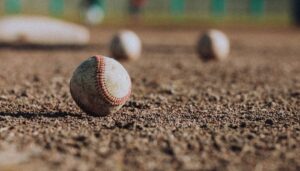
College baseball team strategies
In college baseball, team strategy plays a major role in determining the outcome of a game.
We will explain in detail how to create effective practice plans, improve communication within the team, and conduct pre-game strategy meetings and analysis.
How to create an effective practice plan
An effective practice plan is important for improving player skills and maximizing team performance.
Make a practice plan by keeping the following points in mind:
Create an annual plan:
Create an annual plan that looks at the entire season. Divide it into off-season, pre-season, in-season, and post-season phases, and set goals and priorities for each phase. The off-season focuses on building basic physical strength, the pre-season on improving skills, the in-season on reviewing tactics, and the post-season on reviewing and reflecting on the results.
Weekly practice menu:
Based on the annual plan, a detailed practice menu is set up for each week. For example, physical training on Monday, batting practice on Tuesday, defensive practice on Wednesday, tactical practice on Thursday, and scrimmage (mock game) on Friday, etc., to incorporate a balanced training content.
Introduction of individual training:
We will introduce individual training tailored to each player’s challenges and goals. This will enable players to improve their skills and physical strength, which cannot be covered by group practice alone. Trainers and coaches will provide individual instruction and support the development of players.
Practice feedback:
After each practice, we provide feedback to confirm areas for improvement and achievements of the players. We use video analysis and data to provide specific advice and incorporate it into the next practice. This will help improve the quality of the practice.
Improved team communication
Communication within a team is extremely important for teamwork and tactical understanding.
Improve your communication by:
Regular meetings:
We hold regular team meetings to share information and exchange opinions among players. Through meetings such as post-match review sessions, explanations of practice plans, and confirmation of tactics, we ensure that everyone is working in the same direction.
Open communication environment:
Create an open communication environment where players can freely express their opinions. Coaches and captains proactively reach out to players and listen to their opinions and concerns to build trust. It is also effective to deepen team bonds through team-wide social events and training camps.
Clarifying role allocation:
Clarify roles within the team and ensure that each person understands their responsibilities and roles. For example, set roles for each person, such as captain, vice captain, practice leader, media representative, etc., and smooth the flow of communication. This makes it easier to unify the entire team.
Pre-match strategy meeting and analysis
Pre-match strategy meetings and analysis are important processes that directly affect victory in the match.
Follow these steps to do it effectively:
Analyzing the Opponent:
Collect and analyze opponent data before the match. Gather detailed information about the opponent’s players, batting and pitching tendencies, defensive positioning habits, and more, and develop tactics. Use video analysis and data analysis tools to develop more specific strategies.
Holding a strategy meeting:
A strategy meeting is held before the game to review tactics with the whole team. The coach presents the analysis results and clarifies the roles and tactics of each player. Detailed strategies are shared, such as adjusting defensive positions, deciding the batting order, and the timing of pinch hitters and pinch runners.
Simulation and rehearsal:
The tactics decided in the strategy meeting are simulated in practice to prepare for practice. The tactics are tested in a mock match format to identify problems and areas for improvement. This allows players to check their tactics in a situation close to a real match and reproduce the movements they made during practice in a match.
Mental preparation:
Mental preparation before the match is also important. Mental coaching and relaxation techniques are provided to help players relax and approach the match with confidence. Positive encouragement and team-wide morale-boosting activities are also provided to strengthen the players’ mental state.
Implementing these strategies will help your college baseball team feel more cohesive and play more efficiently and effectively.
By improving your practice plans, increasing communication, and holding thorough strategy meetings, you can maximize your team’s performance and aim for victory.

Balancing college baseball with studies
For college athletes, juggling baseball with their studies is a big challenge.
However, with proper time management and a balanced lifestyle, it is possible to achieve success in both.
Here we’ll explore time management tips, how to balance school and sports, and academic support for college athletes.
Time Management Tips
Effective time management is essential to juggling baseball and academics.
Use the following tips to make the most of your time:
Create a schedule:
Make a daily schedule and balance practice time, class time, study time, and rest time. Make the schedule as specific as possible and clarify what to do and when. We recommend using a smartphone calendar app or a notebook to manage your schedule in one place.
Prioritize:
Clarify your priorities. Categorize your tasks based on urgency and importance, and work on the highest priority first. For example, studying for an exam or preparing for an important game should be set as high priorities.
Time blocking:
Use the “time blocking” technique to allocate specific time periods for specific activities. For example, you can block time for schoolwork in the morning, practice in the afternoon, and study in the evening. This will help you reduce time wastage and get your work done efficiently.
Rest and refresh:
Adequate rest and refreshment are also important. Take short breaks between studying or practicing to relax. If you feel tired, stretching or doing light exercises can help you regain your focus.
How to balance school and sports
Here are some ways to balance your schoolwork and sports:
Plan your study:
Plan your time for schoolwork. Regularly prepare and review your lessons, and make daily study a habit rather than cramming all at once before an exam. Diligent study, such as reviewing your notes immediately after class, is effective.
Utilize online learning:
Utilize online learning that allows you to study regardless of time or place. You can study at your own pace by using online lectures offered by universities or MOOCs (Massive Open Online Courses).
Building cooperative relationships:
It is important to build cooperative relationships with professors and coaches and gain their understanding and support. If you will be absent from class due to a match or practice, you can talk to your professor in advance and ask for a make-up class or an extension on the deadline for submitting assignments. Also, make sure your coach understands the importance of your studies and cooperates with you in adjusting your schedule.
Group study:
Studying with your peers helps you study more efficiently. In group study, you can help each other to understand better and increase your motivation. Studying in a group also helps you manage your time better.
Academic support for college athletes
College student athletes may be provided with special academic support.
By taking advantage of these supports, you will be able to balance your studies and sports more effectively.
Academic Advisor:
The university has an academic advisor who provides individual academic support to students. By meeting regularly with the advisor and discussing your study plan and progress, you can make the most of your studies.
Tutoring:
Many universities offer tutoring programs for athletes. Specialized tutors can provide one-on-one instruction and help you understand specific subjects or assignments. They can help you concentrate before exams or overcome weak subjects.
Resource Center:
The university’s resource center has all the necessary study materials and resources. Use the library and study spaces to create an environment where you can concentrate on your studies. In addition, we hold workshops and seminars to help you improve your study skills, so we encourage you to actively participate.
Mental health support:
Maintaining mental health is also important for athletes. Counseling services are available at universities, so athletes can seek help if they are experiencing stress or anxiety. Receiving mental health support can help athletes balance their studies and sport.
Utilizing these methods and supports allows college athletes to achieve high levels of success in both academics and sports.
With time management, a balanced life, and the right support, you can have a fulfilling university life.

The path from college baseball to professional baseball
For many players, college baseball is an important step towards becoming a professional baseball player.
Here we’ll take a closer look at how to get noticed by professional scouts, the role of college baseball leagues, and some examples of successful professional baseball players from their college days.
How to get noticed by pro scouts
There are a few key points to keep in mind when trying to get noticed by professional scouts.
Use the following methods to make yourself known to professional scouts.
Perform well:
The first and most basic way is to perform well in the game. It is important to show a high level of play in all aspects, including batting, pitching, defense, and base running. Good statistics and performance will make you more likely to catch the eye of professional scouts.
Consistent Performance:
Maintaining consistent performance is also important. It takes consistent performance throughout the season, not just a blip, to gain the trust of professional scouts. This requires constant effort and training.
Maintaining physical condition:
Professional scouts also pay attention to the physical condition of players. It is important to incorporate strength training and fitness programs to improve physical strength and muscle strength. It is also important to pay attention to injury prevention and management so that players are always in the best condition for the game.
Create video highlights:
It is also effective to create video highlights of your play and provide them to professional scouts. Collect and edit important scenes such as batting and pitching highlights and defensive plays. This will allow you to show your skills even if the scout cannot come to the game in person.
Networking and relationships with coaches:
It is also important to build good relationships with college coaches and trainers. Coaches often act as liaisons with pro scouts, so it is important to gain their trust in order to get good recommendations. It is also effective to attend training camps and events and network with pro scouts.
College Baseball Leagues and Their Role
Collegiate baseball leagues are an important platform for players to progress to the professional level.
Below, we explain the role and importance of college baseball leagues.
Improved competitive level:
Collegiate baseball leagues provide an arena for players to compete at a high level. Through league games and tournaments, players can hone their skills and tactics, and gain game experience, which will prepare them for the professional level.
Scout attention:
College baseball leagues are a major stage for professional scouts. Many scouts attend big games, especially national tournaments and league finals. It is a great opportunity for players to directly demonstrate their skills to professional scouts.
Balancing team play and individual skills:
In the college baseball league, both team play and individual skills are emphasized. Players are expected to demonstrate their performance in their own areas of expertise while learning teamwork as part of a team. This allows them to acquire the diverse skills required for professional baseball.
A place for growth:
The college baseball league is also a place for players to grow. Not only do they develop their skills, but they also develop their mental and leadership skills. Through games and practice, they can improve their self-management and problem-solving skills, and acquire the overall skills they need to go on to become professionals.
Examples of successful professional baseball players in college
Many successful professional baseball players gain important experience during their college years, laying the foundation for success on the professional stage.
Below are some examples:
Masahiro Tanaka (Rakuten Golden Eagles/New York Yankees):
Masahiro Tanaka is an example of a player who went to professional baseball from Tomakomai High School attached to Komazawa University, but maintained the same high level of performance he had in college and translated it into professional success. Players like him have used their high school and college experience to establish themselves in the professional ranks.
Shohei Otani (Hokkaido Nippon-Ham Fighters/Los Angeles Angels):
Shohei Otani graduated from Hanamaki Higashi High School and also drew attention for going directly to the pros without going to college. However, the training environment and instruction he received in college was the foundation for his success.
Ichiro (Orix BlueWave/Seattle Mariners):
Ichiro went pro from Aichi Institute of Technology Meidai High School and gained worldwide fame for his subsequent success. Like him, there are many players who build a solid foundation in high school and college, and then blossom into professionals.
Collegiate baseball is an important stepping stone to becoming a professional for many players.
The path to success is to perform well, leverage your experience in collegiate baseball leagues and get noticed by professional scouts.
As can be seen from the examples of successful professional baseball players, the effort and experience gained during college years contribute greatly to success as a professional.

Career Development in College Baseball
Building a career through college baseball can be beneficial not only as an athlete, but also in the fields of business and management.
Here we will take a detailed look at the basics of sports management, college baseball and internships, and career networking through baseball.
Fundamentals of Sport Management
Sports management, a field that specializes in the operation and management of sports business, is an important career option for collegiate baseball players.
Understanding the following points will help you build the foundations of sports management.
Sports Marketing:
Sports marketing is the activity of increasing the brand value of a team or player and increasing sponsorship and advertising revenue. It is important for college baseball players to learn social media and marketing strategies to increase their presence. This will allow them to effectively promote their brand and increase future sponsorship contracts and business opportunities.
Event Management:
Planning and running sporting events is also an important part of sports management. Collegiate baseball players can gain practical skills in event management by participating in the running of games and tournaments, which will lay the foundation for them to become successful sporting event professionals in the future.
Financial Management:
Managing the finances of a sports team or organization is essential to maintaining healthy operations. By learning basic financial management skills, college baseball players will be better equipped to make financial decisions in their careers and in running their teams. Understanding how to create budgets, manage expenses and raise funds will contribute to the success of the sports business.
College Baseball and Internships
Internships are a great opportunity for college baseball players to gain experience in a real business environment.
Here are some ways to use an internship to advance your career:
Internship at a sports-related company:
An internship at a sports-related company or organization allows you to learn about the realities of the sports business through actual work. For example, you could do an internship at a professional sports team, a sports event company, or a sports equipment manufacturer. This will allow you to understand the overall picture of the sports business and help you choose your future career.
University Support:
Many universities offer internship placements through their career centers. Use your university’s support to find an internship that matches your interests and career goals. The career center can help you prepare for an internship by writing a resume and practicing for an interview.
Accumulating practical experience:
The practical experience gained through an internship will be a great advantage in your future job search. By listing the knowledge and skills you gained through your actual work on your CV and explaining them as concrete examples in interviews, you can demonstrate your capabilities to employers.
Career networking through baseball
Career networking is extremely important for college baseball players in building their future careers.
Enhance your networking by:
Alumni and alumni networks:
By utilizing your university’s alumni and alumni networks, you can connect with seniors and professionals active in the sports industry. Attend regular alumni events and actively expand your network. Getting advice and support from your seniors can be useful in your career.
Attend industry events:
Attending sports-related conferences and seminars is a great way to stay up to date on the latest happenings in the industry and network with other professionals. Be sure to introduce yourself at these events and build your network by exchanging business cards and contact details.
Use social media:
Connect with sports industry professionals on social media platforms such as LinkedIn and Twitter. Build your profile and regularly post information about the industry to demonstrate your expertise and enthusiasm. Follow industry trends and news to stay up to date.
Mentorship programs:
Participating in mentorship programs and receiving direct guidance from experienced professionals is also part of networking. By listening to the advice and experiences of your mentor, you can get concrete hints for career development. Mentorship programs are often offered by universities and industry associations, so be sure to actively participate.
By utilizing these strategies, collegiate baseball players can effectively advance their careers in sports business and management.
Understand the fundamentals of sports management and gain practical experience through internships and networking opportunities to set yourself up for a successful future.
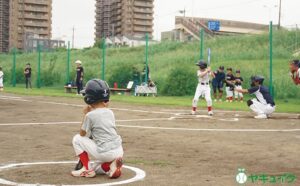
The latest trends in college baseball
Collegiate baseball is a constantly evolving sport, with the latest training techniques, data analytics, and the adoption of AI and technology being key trends.
These factors contribute greatly to improving player performance and optimizing team strategies.
Here we take a closer look at each trend.
The latest training techniques and equipment
The latest training techniques and equipment are key to significantly improving the performance of college baseball players.
Keep the following points in mind:
Virtual Training:
Virtual training technology allows players to train in a simulated, realistic game environment. Virtual reality (VR) training systems allow players to experience real-life pitching and batting scenarios and receive real-time feedback, helping players improve their reaction times and decision making during games.
Wearable Devices:
Wearable devices are important tools for monitoring athletes’ physical data in real time. They measure heart rate, muscle activity, fatigue level, etc., and maximize the effectiveness of training. These devices help to analyze athletes’ performance in detail and provide individual training programs.
Advanced Fitness Equipment:
The latest fitness equipment includes advanced training machines and treadmills that effectively improve players’ strength, endurance and speed. Software is also installed to track training progress in real time, allowing players and coaches to easily view performance data.
How to use data analytics
Data analytics plays a vital role in collegiate baseball.
By effectively utilizing data, it is possible to optimize strategies and improve player performance.
Performance data collection:
It is essential to collect and analyze performance data during games and practice in detail. Various data such as batting performance, pitching data, and defensive position movements are collected to understand the strengths and weaknesses of players. Based on this data, individual training programs are created.
Video analysis:
Video analysis is used to closely observe players’ movements and identify areas for technical improvement. Footage of games and practice sessions is reviewed in slow motion or frame by frame to analyze batting and pitching form. This allows players to objectively evaluate their own play and take measures to improve.
Use of statistical methods:
Data analysis includes using statistical methods to evaluate a player’s performance. For example, more accurate evaluations can be made by using not only batting average and ERA, but also advanced statistical indicators such as OPS (on-base percentage + slugging percentage) and WHIP (number of bases allowed per inning). This allows us to determine the true value of a player and helps us develop strategies.
Introducing AI and Technology to College Baseball
The introduction of AI and technology has the potential to dramatically change the future of college baseball.
The following are some specific implementation examples:
AI Performance Prediction:
AI technology can help analyze players’ past data and predict their future performance. Machine learning algorithms can be used to predict players’ batting average, ERA, and injury risk, and can be reflected in training and match strategies. This can help improve players’ health and performance.
Introduction of tracking technology:
Tracking technology is used to record and analyze players’ movements in real time. The tracking system uses GPS and sensors to record players’ base running speed, defensive range, pitch rotation speed, and other details. This allows us to clarify players’ technical strengths and areas for improvement, and use them in training.
Real-time Data Analysis:
Real-time data analysis during the match is essential to instantly modify your strategy. By collecting data in real time and adjusting your strategy during the match, you can exploit your opponent’s weaknesses, which can give you an advantage in the game.
By incorporating these latest trends, college baseball players can perform at a higher level and help their team win.
Through the adoption of the latest training techniques, data analytics, AI and technology, the future of collegiate baseball is set to become even brighter and more competitive.
